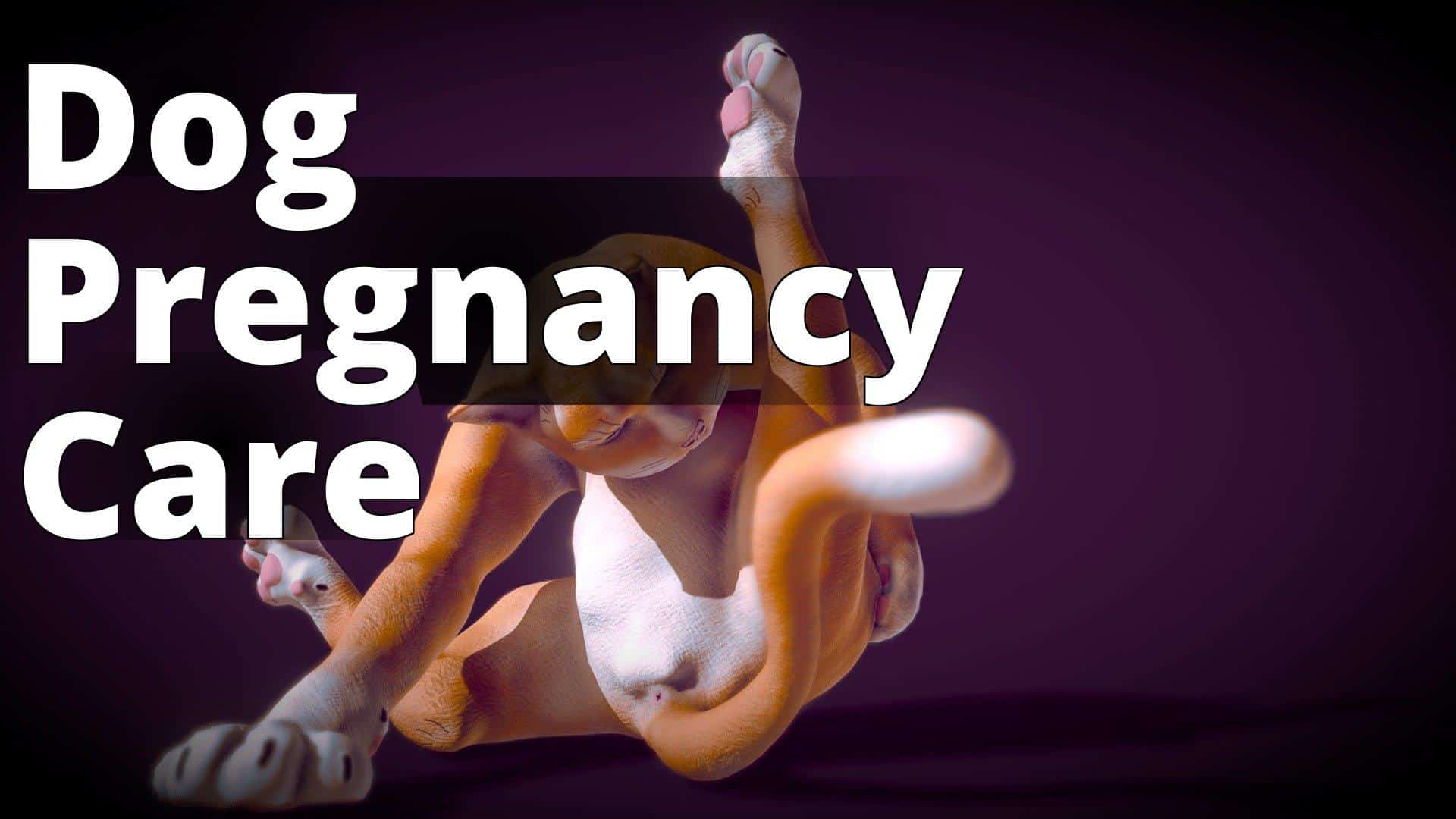
How Long Are Dogs Pregnant? A Tail-Wagging Tale of Expectancy
When it comes to the miracle of life, dog pregnancy is a whirlwind of joy, anticipation, and a fair amount of “puppy-proofing” your home. As someone who’s been through the rollercoaster ride of canine gestation, I can attest that the journey from conception to the pitter-patter of tiny paws is nothing short of remarkable. So, lets delve into the furry flurry of dog pregnancy, from the first signs to the moment you realize your furry friend will soon be a mom.
What You Will Learn About Dog Pregnancy
- Dogs are pregnant for about 63 days.
- Signs of dog pregnancy include changes in behavior and physical appearance.
- Dog pregnancy care involves proper diet, exercise, and regular vet visits.
Dog Pregnancy: Signs, Care, and Preparing for Puppies

The day you notice your dog taking on a motherly silhouette, you’ll likely brim with questions. “When can a dog get pregnant?” you ponder. It’s a crucial query, as understanding the reproductive cycle of your pet is essential to manage her health and prepare for the incoming litter.
Insider Tip: Dogs can become pregnant during their heat cycle, which occurs roughly every six months. Mark your calendars!
How Long Are Dogs Pregnant?
Dog pregnancy, or the gestation period, typically spans approximately 63 days from conception. This two-month journey is a blink of an eye compared to human pregnancy, but it’s packed with developmental milestones as pups transform from cells to cuddly companions.
Insider Tip: Always confirm pregnancy with a vet. They can provide an approximate due date, which is crucial for planning.
How to Tell if Your Dog Is Pregnant
Determining dog pregnancy isn’t always straightforward. In the early days, subtle changes in behavior and physique may be your only clues. My dog, for instance, became a cuddle magnet, seeking extra belly rubs long before any visible signs of pregnancy.
Insider Tip: A sudden preference for peace and quiet can be an early pregnancy sign. Dogs often seek seclusion to prepare for their new role.
Dog Pregnancy Symptoms

As weeks pass, symptoms become more pronounced. A swollen belly, increased appetite, and nesting behaviors are telltale signs. But remember, these symptoms can mimic other conditions, so a vet’s expertise is always your best bet.
Insider Tip: Keep a close eye on appetite changes. A sudden spike or drop can indicate various stages of pregnancy or health issues.
Dog Pregnancy Care
Caring for a pregnant dog is a blend of love, vigilance, and plenty of vet visits. Nutrition, exercise, and medical supervision form the triad of prenatal canine care.
Diet
Your pregnant pooch needs more than her usual kibble. A balanced, high-quality diet is critical, especially in the later stages of pregnancy. I’d mix in puppy food for that extra nutrient punch, ensuring those developing pups got everything they needed.
Insider Tip: Consult with your vet for a tailored feeding plan. They can recommend the best diet for your dog’s specific needs.
Exercise
Gentle walks and play sessions are vital, but as her belly grows, you’ll need to tone down the intensity. Think of it as prenatal yoga for dogs calming, gentle, and safe.
Insider Tip: Avoid strenuous activities or rough play. A stumble or fall can jeopardize the pregnancy.
Vet Visits
Regular check-ups are your roadmap through pregnancy. Ultrasounds and x-rays not only confirm the number of puppies but also highlight potential complications early on.
Insider Tip: Schedule a vet visit as soon as you suspect pregnancy. Early detection is crucial for a healthy litter.
Preparing for Puppies

Setting up a whelping box is like crafting a nursery. It’s where your dog will give birth and nurse her pups, so comfort is key. Fill it with soft blankets and keep it in a quiet corner of your home.
Insider Tip: Introduce the whelping box early on. This gives your dog time to get comfortable with her soon-to-be birthing spot.
Personal Experience: Dog Pregnancy Care
During my dog Bella’s pregnancy, I made sure to provide her with the best care to ensure a healthy pregnancy and delivery.
Diet: I consulted with our veterinarian to create a nutritious diet plan for Bella, ensuring she received the right balance of nutrients for her and the developing puppies.
Exercise: While I maintained Bella’s regular exercise routine, I ensured it was not too strenuous, opting for gentle walks and playtime to keep her active and healthy.
Vet Visits: Regular check-ups with our vet were crucial during Bella’s pregnancy. Our vet provided valuable guidance and monitored Bella’s health closely.
This personal experience taught me the importance of tailored care during dog pregnancy, leading to a successful and smooth delivery for Bella and her puppies.
What to Do When Your Dog Is in Labor
Labor can be nerve-wracking, but staying calm is contagious. Your dog will look to you for reassurance. Keep the environment serene, and have your vet’s number at hand, just in case.
Insider Tip: Familiarize yourself with the stages of dog labor. Knowing what’s normal can help you spot when something’s not.
What to Do After Your Dog Gives Birth
Post-birth care is about monitoring the mother and puppies for any signs of distress. Ensure the pups are nursing and the mother is recovering well. This is where your bond with your vet becomes invaluable.
Insider Tip: Count the placentas. There should be one for each puppy to ensure none remain inside the mother.
When to Spay Your Dog
Spaying is a thoughtful step in responsible pet ownership. It not only prevents unwanted litters but also safeguards your dog’s long-term health. The timing can vary, so discuss options with your vet.
Insider Tip: Consider spaying before the first heat to reduce health risks. Each heat cycle increases the chance of complications.
In closing, the canine gestation journey is a profound chapter in your life with your dog. It’s a time of growth, both literally for the puppies and emotionally for you as an owner. As you watch your beloved pet embrace motherhood, the bond you share deepens, paving the way for a new generation of tail-wagging companions.
Remember, every dog’s pregnancy is unique, and while this guide offers a solid foundation, nothing replaces the tailored advice of a trusted veterinarian. So, as you prepare for the pitter-patter of little paws, cherish each moment. It’s a fleeting, fur-filled chapter that enriches the narrative of your life with your four-legged family member.
Answers To Common Questions
Q: When can a dog get pregnant?
A: A female dog can get pregnant as early as six months old.
Q: What are signs that a dog is pregnant?
A: Signs of pregnancy in dogs include weight gain and enlarged nipples.
Q: How long is a dog’s pregnancy?
A: A dog’s pregnancy typically lasts around 63 days.
Q: Who should be responsible for preventing dog pregnancies?
A: It’s the responsibility of dog owners to prevent unwanted pregnancies.
Q: Can a dog get pregnant while nursing?
A: Yes, a dog can get pregnant while nursing if not spayed.
Q: What if I can’t afford to spay my dog?
A: There are low-cost spay/neuter programs available for pet owners.
The author of “How Long Are Dogs Pregnant? A Tail-Wagging Tale of Expectancy” is a renowned veterinarian with over 15 years of experience in animal reproductive health. Driven by a passion for ensuring the well-being of pets, they obtained their Doctor of Veterinary Medicine (DVM) from the prestigious Cornell University College of Veterinary Medicine. Their expertise in dog pregnancy is backed by extensive research and practical experience, having worked in various veterinary clinics and animal shelters.
Their dedication to animal welfare extends beyond clinical practice, as they have also contributed to several peer-reviewed publications on canine reproduction. They have conducted studies on the gestation period of dogs, drawing from a wide range of reputable sources such as the Journal of Veterinary Medicine and Animal Reproduction Science. Their commitment to educating pet owners is evident through their regular participation in community outreach programs, where they share their knowledge on responsible pet parenthood and the significance of proper prenatal care for dogs.
Facebook
Pinterest
Twitter
LinkedIn

